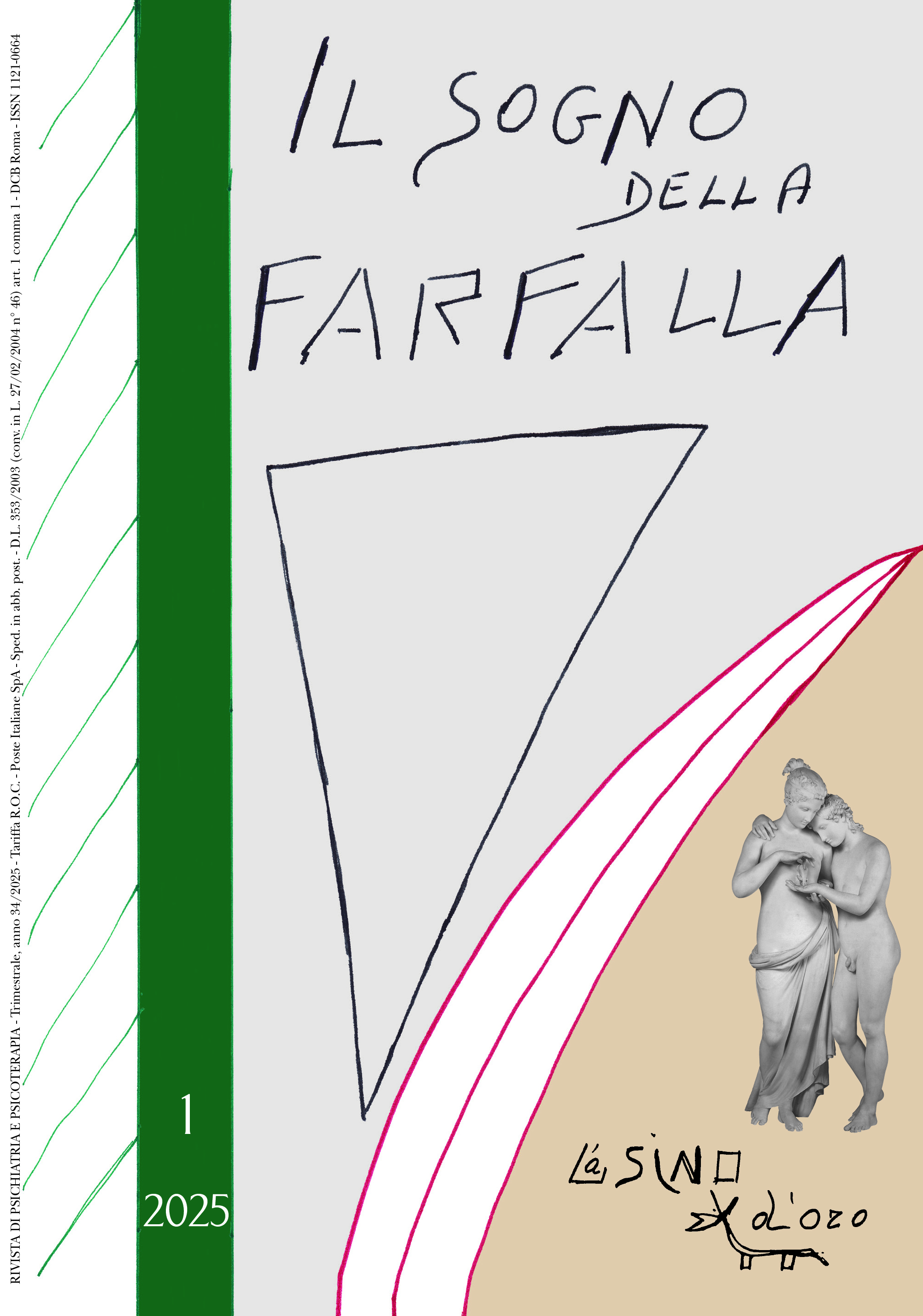Identificazione: definizione e clinica in Istinto di morte e conoscenza
DOI:
https://doi.org/10.14663/sdf.v34i1.935Parole chiave:
introjective identification, projective identification, internal image, introjection, projectionAbstract
The authors present the originality of Fagioli’s thought regarding the concept of identification, starting from his Human Birth Theory. In current psychoanalytic theories, identification is still considered a normal and desirable outcome of human development, forming the foundation of the therapeutic relationship. After a brief review of the concepts of introjection and identification in Freud, Ferenczi and Klein, the authors examine how Fagioli specifically opposed Klein’s concept of projective identification. According to Fagioli’s theory, introjective and projective identification are psychic dynamics that manifest in various degrees of pathological relationships. These dynamics emerge after birth, starting from the mother-infant relationship and due to repeated human disappointing experiences; they are neither original nor a physiological outcome of psychic development.
Fagioli also draws a clear distinction between introjection, projection, introjective identification and projective identification. This distinction has significant implications for the therapeutic relationship, which should aim at curing the pathological relational dynamics stemmed from disappointing interpersonal experiences. As Fagioli explains in the first chapter of Death instinct and knowledge, in the paragraph A case history, understanding identification and the subsequent annulment pulsion against projected identification laid the foundation for treatment. The therapist, who does not propose identification, does not judge, but instead interprets and proposes his/her identity, forces the patient into a transformative crisis.


